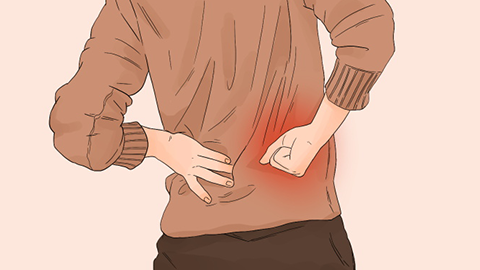How is ankylosing spondylitis treated?
In general, ankylosing spondylitis may be caused by factors such as genetic influences, long-term poor posture, immune dysfunction, joint synovitis, and calcification and fusion of spinal joints. It is recommended to seek timely medical consultation, identify the cause, and improve the condition through general treatment, medication, or surgical treatment under a doctor's guidance. Detailed explanations are as follows:

1. Genetic factors: Individuals carrying the HLA-B27 gene have a higher risk of developing the disease, as genetic susceptibility increases the likelihood of onset. Daily joint protection is important—avoid strenuous exercise and excessive fatigue, and undergo regular spinal and joint examinations for early detection and intervention to delay disease progression.
2. Long-term poor posture: Poor postures such as prolonged bending or sitting can increase spinal load and trigger or worsen inflammation. Adjust daily posture to maintain an upright spine, avoid prolonged bending or sitting, and stand up for 5–10 minutes every hour of sitting. Choose a mattress of moderate firmness and sleep on your back or side rather than your stomach to reduce spinal strain.
3. Immune dysfunction: Abnormal immune responses attacking the body's own joint tissues can cause inflammatory reactions. Patients should follow medical advice to use medications such as celecoxib capsules, diclofenac sodium sustained-release tablets, or etoricoxib tablets to relieve pain and inflammation.
4. Joint synovitis: Congestion and edema of the synovium can cause joint pain and stiffness, affecting joint mobility. In addition to oral anti-inflammatory drugs, biologic agents such as adalimumab injection, etanercept injection, or infliximab injection may be used under medical supervision to precisely inhibit inflammatory factors and rapidly alleviate synovial inflammation.
5. Spinal joint calcification and fusion: Disease progression can lead to spinal joint bone spurs, calcification, and fusion, resulting in spinal deformities and restricted movement. If spinal deformity severely impacts daily life, spinal corrective surgery can be performed to correct spinal curvature and restore normal spinal curvature.
Daily precautions include keeping warm to avoid cold-induced inflammation, maintaining a balanced diet rich in protein and vitamins to enhance immunity, and undergoing regular follow-up imaging such as spinal X-rays or CT scans to monitor disease progression and adjust treatment plans promptly.







